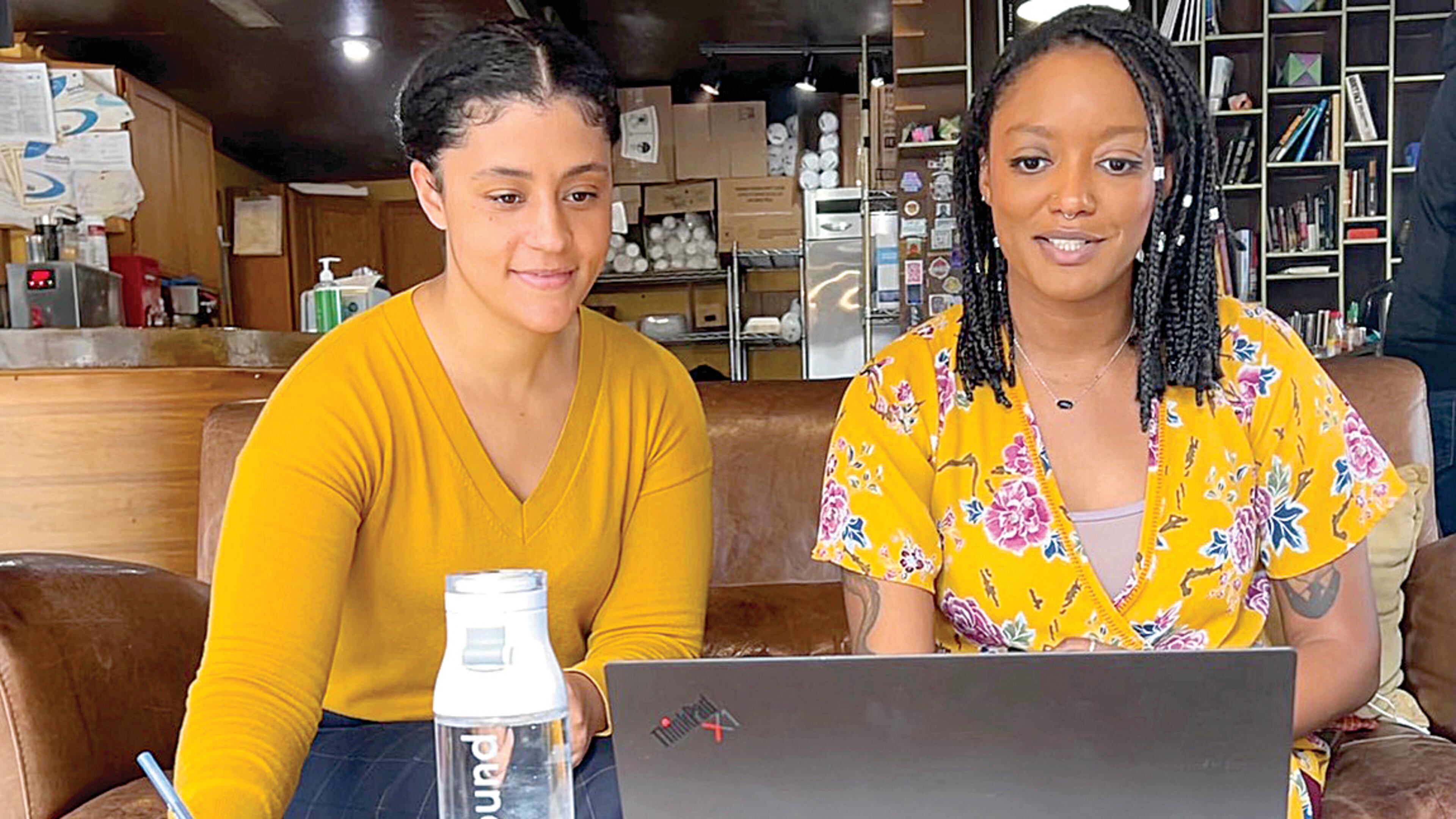Talking it Out: Hopebound offers accessible mental health support to students

It’s not easy being a middle or high school student today with 24/7 social pressures and the uncertainty of a persistent pandemic. And adolescents who have marginalized identities such as being low-income, youth of color, and/or LGBTQ+ youth are more likely to experience mental health stressors and less likely to access help, especially in Georgia, which ranks last in the nation for access to mental health care.
Hopebound seeks to bridge that gap by providing weekly one-on-one teletherapy to under-resourced adolescents, ages 10-17 in Atlanta (and Newark), during the school year.
“Hopebound isn’t too good to be true,” said founder Christina Guilbeau. “We provide our services at no or very low cost because our supervised clinicians are pursuing licensure. Our mission is to make mental health support more accessible to adolescents in need.”
The nonprofit works with schools, afterschool programs and families for referrals. Hopebound staff meet with each caregiver and youth client to explain their services, complete the intake process and provide devices/hotspots, if needed. The adolescent is then matched with a supervised pre-licensed clinician.
“We also have monthly caregiver sessions,” said Cayla Winn, Hopebound Programs and Operations Manager. “We want parents to be as involved as possible – not breaching any confidentiality – but to check in on how their child is progressing.”
While teaching middle school in Baton Rouge, Guilbeau became aware of the lack of mental health support for adolescents.
“I saw how it made my students unable to show up in the way they really wanted to because of everything they were dealing with outside of the classroom,” Guilbeau said.
She also experienced burnout trying to plan individual lessons for “100 students on almost 100 different proficiency levels,” so she sought mental health support for herself.
“I had been dealing with what is called ‘high functioning anxiety and depression’ since I was 14,” Guilbeau said. That’s the age at which 50 percent of lifetime cases of mental illness begin.
Her “aha” moment came later while pursuing her MBA in nonprofit management at Stanford Graduate School of Business.
“During that time, one of my former students with whom I’m very close almost took her own life,” Guilbeau said. “I was the only adult who knew what was going on. I needed to do something.”
Meanwhile, Guilbeau’s friends and family members who were pursuing mental health professional degrees were struggling to earn their clinical hours. This sparked Guilbeau’s idea to virtually connect adolescents in need of mental health support with supervised clinician interns.
“I knew there were so many other kids out there like my student who needed accessible one-on one mental health care,” Guilbeau said. “So I thought, let’s make these two come together. I applied for and received the 2019 Stanford Social Innovation Fellowship and with that funding, launched Hopebound.”
Hopebound’s clinicians are graduate students – studying counseling, social work, clinical psychology, or marriage and family therapy – required to complete supervised hours for licensure. Through the nonprofit, they provide talk therapy services and meet with a licensed mental health clinician weekly to review and support their cases.
“I tell them, ‘This is as authentic as it’s going to be’,” Winn said. “These are real clients; these are real kids. It’s preparing them for what they are going to do after school.” Current Atlanta clinicians include Brenau University graduate students and a post-graduate clinician from Clark Atlanta University.
For the 2021-2022 school year, the nonprofit is serving 42 adolescents in Atlanta, coming from SLAM! Atlanta charter school (grades 4 – 6), Paideia (financial scholarship students) and caregiver referrals.
“We will be launching a virtual group in January with the Boys & Girls Clubs of Metro Atlanta, with an estimated 8-10 participants,” Guilbeau shared.
Research indicates that clients can show improvement within a few months of starting therapy. This is consistent with Hopebound’s initial results; all clients reporting a 21% average improvement in their mental health functioning.
“I have learned how to identify and cope with sudden feelings of anxiety, and that I am not as alone as I would think,” a client shared.
“My children adore their therapists (as do we) and seem to have a much greater understanding of their emotions” a caregiver shared. “I think having a neutral, relatable third party in their corner helps them feel heard and understood in a way that they hadn’t felt before.”
The nonprofit is seeking more Atlanta partners to reach more adolescents and pre-licensed clinicians.
“We try to be responsible with our growth because we know how fragile this is, “Guilbeau said. “We were unable to serve all interested families and community partners due to limited capacity. We are excited to be able to expand next school year.”
Caregivers, schools, and community partners can learn more at Hopebound.com.

MEET OUR PARTNER
Today’s story comes from our partner, Atlanta Intown. Atlanta Intown publishes a free monthly community newspaper . Visit them online at AtlantaIntownPaper.com or on Instagram @AtlantaIntown.
If you have any feedback or questions about our partnerships, you can contact Senior Manager of Partnerships Nicole Williams via email at nicole.williams@ajc.com.


